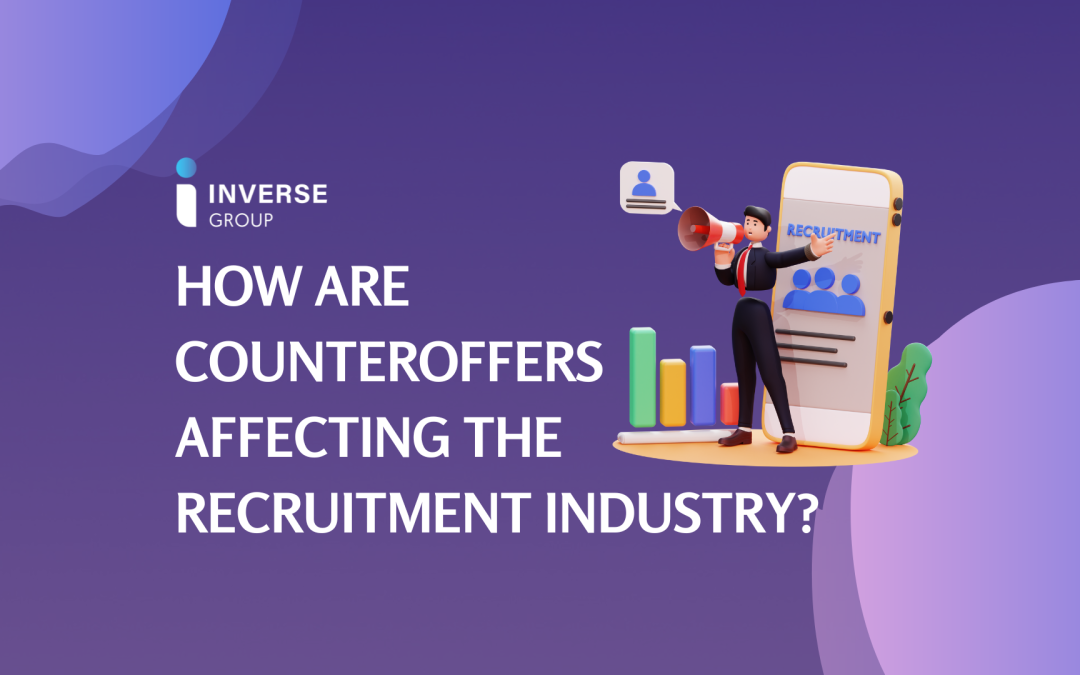Over the past couple of months, our recruiters at Inverse Group have noticed an increase in individuals accepting counteroffers. This has raised the question of why individuals are willing to go through the process of looking for a new role, interviews, and reference checks, for them to decline and accept a counteroffer.
What is a Counteroffer?
A counteroffer is “an offer made in response to another”. In other words, it’s when your current employer gives you an offer to compete with the one you have already received from another company. Counteroffers can include salary increases, increased job flexibility, promotions, and changes in job roles/responsibilities.
The benefits of counteroffers
For employees, the main benefit of accepting a counteroffer is that you are already comfortable and familiar with your current place of employment. If you are happy with your role and just want minor adjustments, counteroffers are an option.
Towards the employer, studies show that 50% of employers offer a counteroffer when employees resign, with the hopes that they stay. Companies understand that it is more cost-effective to do a counteroffer than it is to try and find someone new. Studies show that 12% of employees resign due to money. Industries such as data scientists and data analysis have had an increase of 120% in salaries due to counteroffers. Similarly, front and back-end engineers have had an increase of 50-100% salary. Places such as Perth are also experiencing skill shortages, where employers cannot afford for staff to leave and would rather offer them a counteroffer than the risk of losing them.
The negatives of counteroffers
Interestingly, studies show that counteroffers rarely work. A recent industry study reflects that “46% leave, 4% accept the counter offer but stay less than three months, and 21% stay between three-12 months”.
Other studies display that 80% of candidates who accept a counteroffer from their current employer will be looking for a new job within two months as the novelty of salary increases and responsibilities wear off and end up leaving within 6 months. Further, 90% of people who accept the counteroffer leave within a year. This reflects the idea that job satisfaction does not increase due to counteroffers and that it does still decrease over time.
Another impact is damage to relationships and professional reputation, where your loyalty may be questioned. Your current employers may view you differently as you didn’t go directly to them to speak openly about your current feelings. They also may view you differently, as to them they may think that you are only after financial gain. Relationships can also be damaged with the company that offered you the role, making it seem like you wasted their time and resources.
Typically, once an employer offers a pay rise many will stay however when the economy falls and the company can no longer afford the increased pay rates, you may be the first to be let go.
Counteroffers and recruiters
It’s never been more important to thoroughly qualify candidates than in the current market. This includes discussing with the candidates how they intend to respond if presented with a counter offer from their current employer before engaging in the recruitment process. This will help gauge what they are thinking and helps give an indication of their passion and drive towards the new.
Should you accept a counteroffer?
Everyone is different and there is no right or wrong answer to this question. It’s just like the saying, is the grass greener on the other side? It Is up to you as the individual to decide what is right for you. However, before accepting a counteroffer, it is important to consider why you were seeking a new role in the first place and whether staying with your current role will help with your long-term career development goals?
It is also important to remember that you will often need a reference from your former employer for future roles. If you decide to leave your current employer, make sure to leave on good terms.
What are your thoughts on Counteroffers, let us know below!

